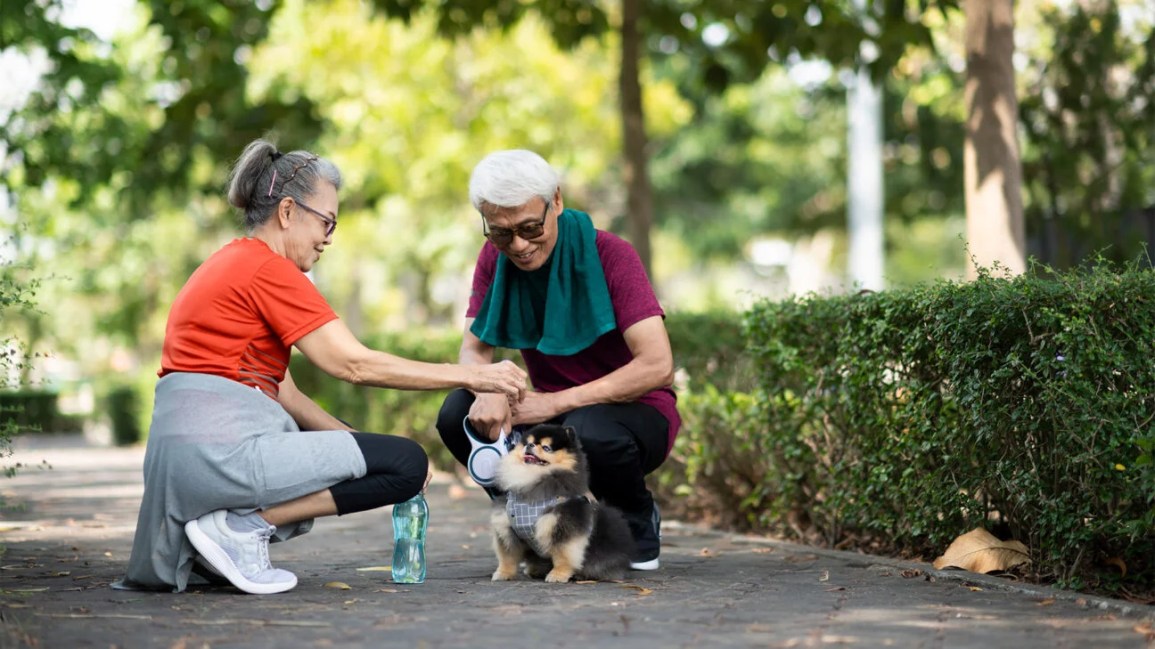Exercise has long been known to have numerous health benefits, from improving cardiovascular health to boosting mood and energy levels. But did you know that exercise can also play a crucial role in reducing your risk of cancer? According to a new study, incorporating just 1-2 minutes of vigorous exercise into your daily routine can lower your cancer risk by over 30%. In this article, we will explore the findings of this study and delve into how lifestyle exercise can be a powerful tool in protecting against cancer.
How Lifestyle Exercise Can Lower Your Cancer Risk According to a New Study

The study, published in the Journal of the American Medical Association, looked at the impact of lifestyle exercise on cancer risk. The researchers analyzed data from over 750,000 participants and found that those who engaged in 1-2 minutes of vigorous exercise daily had a 31% lower risk of developing cancer compared to those who were sedentary. This includes activities such as power walking, stair climbing, or any other form of intense physical activity that gets your heart rate up.
The Role of Vigorous Intermittent Lifestyle Physical Activity (VILPA)
So why does this short burst of exercise have such a significant impact on cancer risk? The study suggests that it is due to the effects of vigorous intermittent lifestyle physical activity (VILPA). VILPA refers to short bursts of intense physical activity, followed by periods of rest. This type of exercise has been shown to boost cardiorespiratory fitness, reduce insulin resistance, and decrease inflammation – all known risk factors for cancer.
VILPA is accessible to everyone, as it does not require any special equipment or facilities. This addresses the common excuse of not having enough time for exercise. With just 1-2 minutes of vigorous activity, you can reap the benefits of VILPA and lower your cancer risk.
Incorporating VILPA into Your Routine
Now that we know the benefits of VILPA, how can we incorporate it into our daily routines? One effective method is habit stacking. This involves adding exercises to existing habits, making it easier to stick to a regular exercise routine. For example, you can do squats while brushing your teeth or take the stairs instead of the elevator when going to work. These small changes may seem insignificant, but they can add up and make a big difference in reducing your cancer risk.
Another way to incorporate VILPA is by setting aside a few minutes each day for a quick workout. This could be during your lunch break or before starting your day. You can also try incorporating VILPA into your leisure activities, such as playing with your kids or taking a walk with your dog. The key is to find activities that you enjoy and can easily fit into your daily routine.
Emotional Benefits of VILPA
Aside from the physical benefits, VILPA can also have a positive impact on your emotional well-being. Regular exercise has been shown to boost confidence and motivation, leading to a more positive outlook on life. This can be especially beneficial for cancer patients, who often struggle with feelings of anxiety and depression. By incorporating VILPA into their routine, they can not only reduce their cancer risk but also improve their overall quality of life.
How to Get Started with Lifestyle Exercise

If you are new to exercise or have been sedentary for a while, it’s essential to start slow and gradually increase the intensity and duration of your workouts. It’s also crucial to consult with your doctor before starting any new exercise routine, especially if you have any underlying health conditions.
Here are some tips to help you get started with lifestyle exercise:
- Start with short bursts of vigorous activity, such as 1-2 minutes of power walking or stair climbing.
- Gradually increase the duration and intensity of your workouts as you build up your fitness level.
- Find activities that you enjoy and can easily fit into your daily routine.
- Use habit stacking to incorporate exercise into your existing habits.
- Set realistic goals and track your progress to stay motivated.
The Role of Diet in Reducing Cancer Risk
While exercise is a crucial factor in reducing cancer risk, it’s essential to also pay attention to your diet. A healthy, balanced diet can help prevent various types of cancer, including breast, colon, and prostate cancer. Here are some dietary recommendations to lower your cancer risk:
- Eat a variety of fruits and vegetables, aiming for at least 5 servings per day.
- Limit your intake of red and processed meats.
- Choose whole grains over refined grains.
- Avoid sugary drinks and limit your alcohol consumption.
- Incorporate healthy fats, such as olive oil and avocados, into your diet.
- Stay hydrated by drinking plenty of water throughout the day.
Other Lifestyle Factors That Can Lower Cancer Risk
Aside from exercise and diet, there are other lifestyle factors that can play a role in reducing your cancer risk. These include:
- Avoiding tobacco products: Smoking is a leading cause of cancer, so quitting smoking or avoiding tobacco products altogether can significantly reduce your risk.
- Maintaining a healthy weight: Being overweight or obese has been linked to an increased risk of various types of cancer. By incorporating regular exercise and a healthy diet, you can maintain a healthy weight and lower your cancer risk.
- Getting enough sleep: Poor sleep patterns have been associated with an increased risk of cancer. Aim for 7-9 hours of sleep each night to promote overall health and well-being.
- Managing stress: Chronic stress can weaken the immune system and increase inflammation, both of which can contribute to cancer development. Find healthy ways to manage stress, such as exercise, meditation, or spending time with loved ones.
Conclusion
Incorporating lifestyle exercise into your daily routine can have a significant impact on reducing your cancer risk. Just 1-2 minutes of vigorous activity each day can lower your risk by over 30%. By incorporating VILPA into your routine and making healthy dietary choices, you can take control of your health and protect yourself against cancer. Remember to consult with your doctor before starting any new exercise or diet routine, and always listen to your body’s needs. With small changes and consistent effort, you can unlock the power of exercise and live a healthier, cancer-free life.


